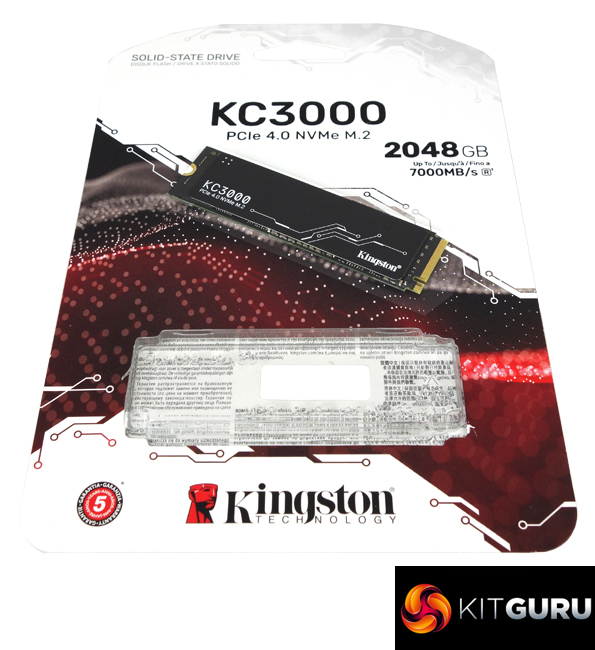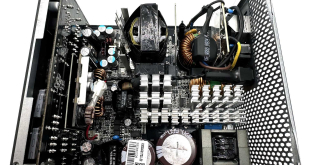One name missing from the list when the first round of PCIe Gen4 drives hit the market has, at last, launched a Gen 4 drive. Kingston waited until now to release the KC3000, but the wait has allowed them to marry up Phison's powerful PS5018-E18 8-channel controller with, not the usual 96-layer TLC NAND, but with new shiny 176-layer B47R 3D TLC NAND.
At launch the KC3000 line-up consists of four capacities; the entry-level 512GB, 1TB, 2TB (the drive we are reviewing) and the flagship, 4TB model. With the new 176-layer NAND being able to run at the E18's top 1,600 MT/s transfer rate, the KC3000 comes with an impressive set of performance figures. All four drives in the range are rated up to 7,000MB/s for Sequential reads with Sequential writes varying with capacity so the 512GB drive is rated up to 3,900MB/s, the 1TB drive up to 6,000MB/s while the 2TB and 4TB models get the same up to 7,000MB/s rating.
Random 4K performance is quoted as up to 1,000,000 IOPS for both reads and writes for the 2TB and 4TB drives, the 1TB drive gets the same 1,000,000 IOPS write rating but with a 900,000 IOPS read rating. The entry-level 512GB drive is rated at up to 450,000 IOPS and up to 900,000 IOPS for random reads and writes respectively.

The best Sequential read test score we saw was the 7.428MB/s when using our custom 128KB settings for CrystalDiskMark 8, which not only confirmed the official figure of 7,000MB/s, it bettered it too. The best tested Sequential write performance figure came from the CrystalDiskMark 8 Peak Performance profile (using compressible data) at 6,919MB/s, just shy of the official 7,000MB/s.
With our 4-threaded testing, we couldn't get close to the official 1,000,000 IOPS for both reads and writes. However, the best test result of 668,752 IOPS we saw from CrystalDiskMark's default Peak Performance profile is the fastest we've seen to date from a consumer Gen4 drive. The best random write figure we got from the drive, 548,451 IOPS also came from the Peak Performance profile.
The drive comes with a graphene aluminium heat spreader covering the controller, four of the NAND packages and one DRAM chip but on the other side of the PCB, the components are covered by a plain label. Although we didn't see any thermal throttling issues, a wise move might be to use any available motherboard cooling technology.
Kingston’s SSD management utility, SSD Manager, may not be as feature-rich as some of its competitors but without all the bells and whistles and funky GUI’s, it will automatically detect any firmware updates as well as displaying drive status, temperatures and SMART information.
We found the 2TB version of Kingston's KC3000 on Ballicom for £353.96 (inc VAT) HERE.
Discuss on our Facebook page HERE.
Pros
- Overall performance.
- Endurance.
- 5-year warranty.
Cons
- Pricing could do with a little tweaking.
- No AES hardware encryption.
KitGuru says: Kingston have taken their time to introduce a Gen4 SSD, but the wait has been worth it as they've been able to combine Phison's E18 controller with the latest 176-layer 3D TLC NAND to make the KC3000 one of the fastest Gen4 drives around. The pricing could just do with a small tweak to make it really competitive.
 KitGuru KitGuru.net – Tech News | Hardware News | Hardware Reviews | IOS | Mobile | Gaming | Graphics Cards
KitGuru KitGuru.net – Tech News | Hardware News | Hardware Reviews | IOS | Mobile | Gaming | Graphics Cards



